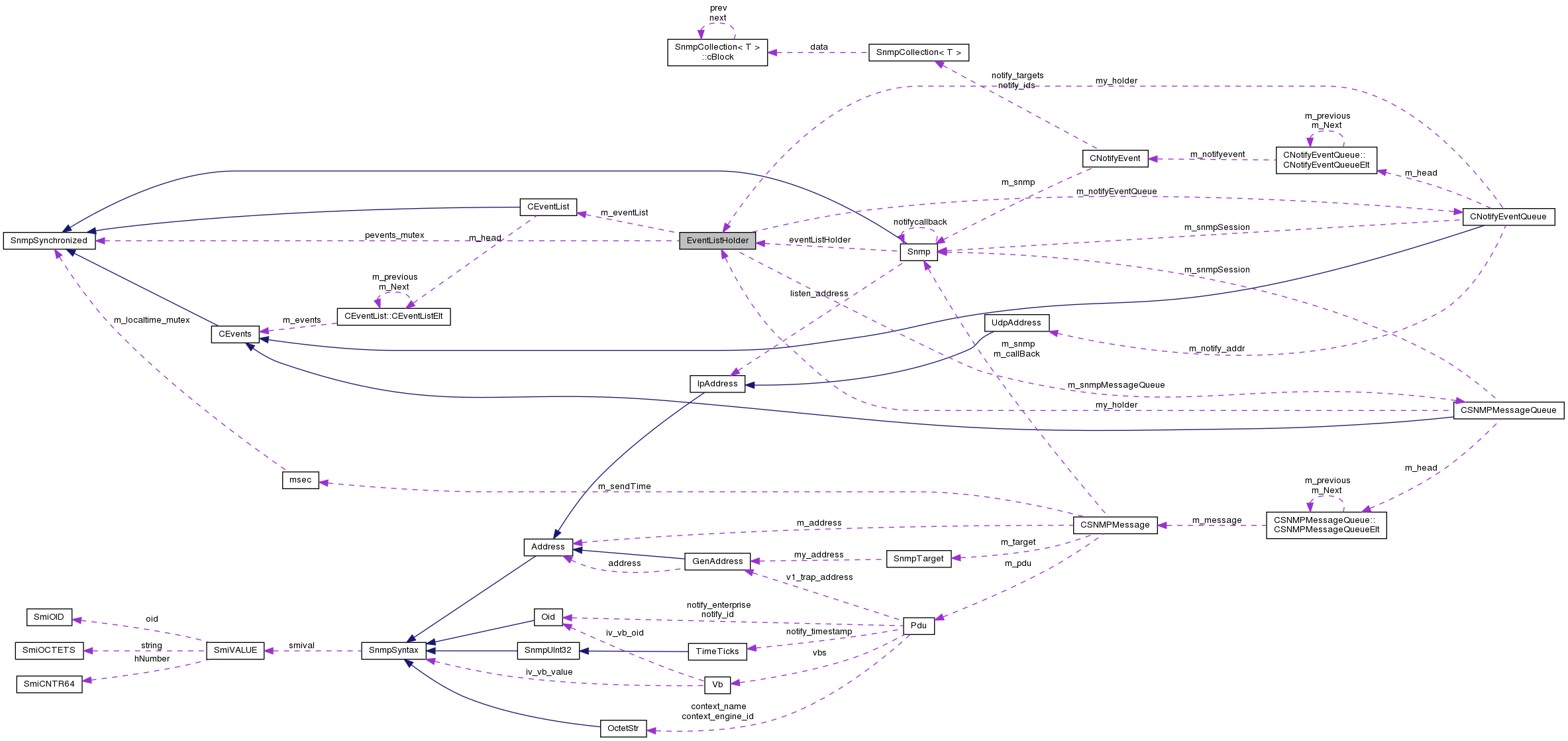#include <eventlistholder.h>
Definition at line 51 of file eventlistholder.h.
◆ EventListHolder()
| EventListHolder::EventListHolder |
( |
Snmp * |
snmp_session | ) |
|
◆ ~EventListHolder()
| EventListHolder::~EventListHolder |
( |
| ) |
|
|
inline |
◆ notifyEventList()
◆ SNMPBlockForResponse()
| int EventListHolder::SNMPBlockForResponse |
( |
const unsigned long |
req_id, |
|
|
Pdu & |
pdu |
|
) |
| |
◆ snmpEventList()
◆ SNMPExitMainLoop()
| void EventListHolder::SNMPExitMainLoop |
( |
| ) |
|
◆ SNMPGetFdSets()
| void EventListHolder::SNMPGetFdSets |
( |
int & |
maxfds, |
|
|
fd_set & |
readfds, |
|
|
fd_set & |
writefds, |
|
|
fd_set & |
exceptfds |
|
) |
| |
◆ SNMPGetNextTimeout()
| unsigned long EventListHolder::SNMPGetNextTimeout |
( |
| ) |
|
◆ SNMPMainLoop()
| void EventListHolder::SNMPMainLoop |
( |
const int |
max_block_milliseconds = 0 | ) |
|
Infinite loop which blocks when there is nothing to do and handles any events.
- Note
- If no messages are outstanding, select() is called with the given timeout, so any async messages that are sent out later are not processed until this select call returns.
◆ SNMPProcessEvents()
| int EventListHolder::SNMPProcessEvents |
( |
const int |
max_block_milliseconds = 0 | ) |
|
Block until an event shows up - then handle the event(s).
- Note
- If no messages are outstanding, select() is called with the given timeout, so any async messages that are sent out later are not processed until this select call returns.
◆ SNMPProcessPendingEvents()
| int EventListHolder::SNMPProcessPendingEvents |
( |
| ) |
|
◆ m_eventList
◆ m_notifyEventQueue
◆ m_snmpMessageQueue
◆ pevents_mutex
The documentation for this class was generated from the following file:

